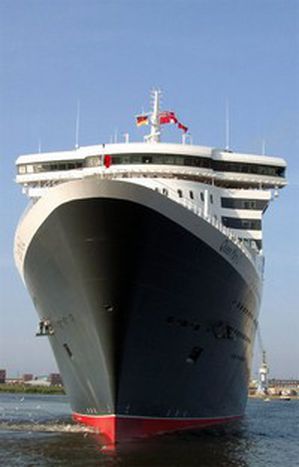
Flexible Fleet or Supertanker?
Published on
Translation by:
 rosie fuller
rosie fuller
Liberal or federal? To widen or to deepen? On board the ship named Europe, the course of the future is being disputed
Since the constitution was thrown overboard by its passengers, the boat Europe has been drifting on stormy seas without a set destination. Her captains, the 25 heads of state, have split themselves into two opposing camps: the economic liberals and the federalists. Spokesman for the liberals is Tony Blair, and on his side he has the ten new member states. Until the end of December, Blair, as the current EU president, will hold the rudder in his hand. His course is clear: the market must open up even further.
The other camp is made up of federalists, led by Germany and France. They continue to dream of a politically unified Europe. Through a common economic and social policy, the “European social model” should become reality. They are defending themselves against an opening up of their labour markets and have put in place transitional regulations to protect themselves from the liberalisation of and low paid workers flooding in from the East.
Everybody wants to climb aboard
The masses who are jostling to get a place on the boat - Bulgaria, Romania, Croatia, and even Turkey and Ukraine - believe that the EU should be widened. But many federalists are warning that the ship should first be made more seaworthy, and tha political cooperation should deepen before letting others on board. Because if the EU were to include 29 states, it would have 29 captains who would each be allowed six months at the helm.
The lack of deepening doesn’t worry the liberals, who don’t want to make a ponderous super tanker out of Europe. This is how the liberal thinker and former European Commissioner Ralf Dahrendorf greeted the failure of the constitution. He believes that the constitution would only have strengthened sluggish Brussels bureaucracy with its policies of subsidisation, thereby blocking the free circulation of people, goods and services. To Dahrendorf, the EU is just a loosely joined together club of market economy democracies which could include Russia and the North African states.
Deepening and Widening
The camps are clearly defined: the federalists have written “deepen” on their flag, the liberals, “widen.” But can the economy and politics really be so carelessly declared enemies? The facts would suggest not. Contrary to what Dahrendorf would like liberals to believe, their wish for quicker decision-making will only come from deepening. The EU is not making any progress in economic policy because every state nervously uses its right to veto to protect its own interests. This is how the Germans and the French protect their labour market, and the British keep their rebate. If the power of the nation states was limited, the common market could become better organised. Widening can only properly work if it is accompanied by deepening.
The tearing down of trade barriers means a purely national economic policy is no longer enough. The old currencies are becoming superfluous, resulting in a single currency. Companies are becoming more and more mobile, they will move away at the drop of a hat if they find cheaper conditions in other European countries. Tax systems thrive under the pressure of competition. Many citizens feel threatened by the course of events, as they have no possibility to control them. But without the consent of its citizens, a large European market will never be able to function. Its widening must be accompanied by strong, democratic institutions, and these in turn must be created by deepening.
Shadow boxing
But if we keep widening and deepening, opening our markets and strengthening the voice of the people, will it not result in the creation of a monstrous superstate? Federalists like Jacques Chirac and the German philosopher Jürgen Habermas say that only when there is a strong, politically united EU would they be in a position to dispute the USA’s right to be the lead actor on the stage of world politics. For the liberals this sort of EU is their worst nightmare. That is why they want to prevent any further deepening.
But here too the contrast between “widening” and “deepening” is only a mirage. Democracies, unlike dictatorships, can change their political direction. Spain sent troops into Iraq under Primer Minister Aznar, and then withdrew its soldiers again under Zapatero. Aznar wanted to strengthen the influence of the Catholic Church, Zapatero has let homosexuals get married. Is Spain pro or anti-America? Catholic or secular? Spain is a democracy, therefore many different social factions fight for influence. Similarly, as a democratic federal state the EU would not automatically seek conflict with the USA.
The crew of the Europe should stop this mock fighting. The 25 captains must think together in the next decade about how they can get their ship to float again. If they fail to do this, their boat will continue to drift powerless and goal-less in the high seas of world politics.
Translated from Flexible Flotte oder Supertanker Europa?


